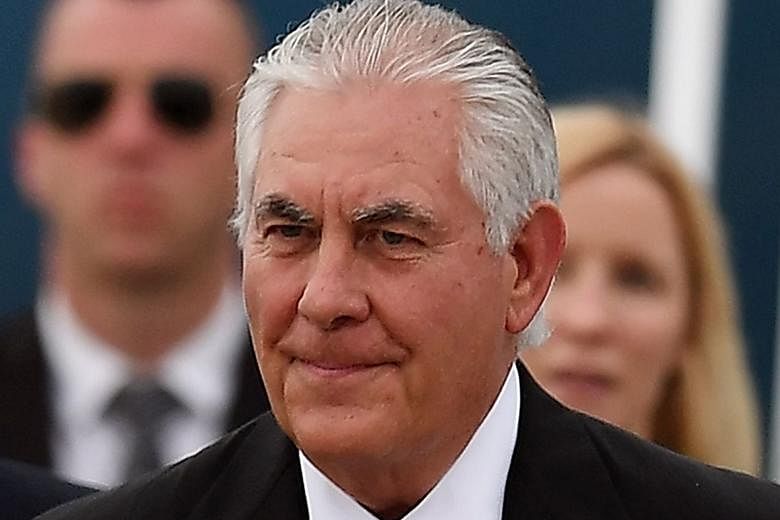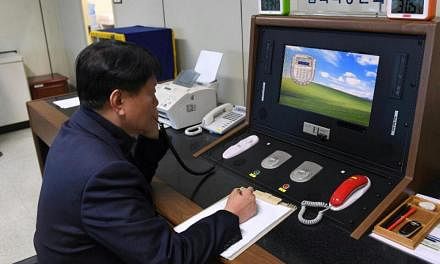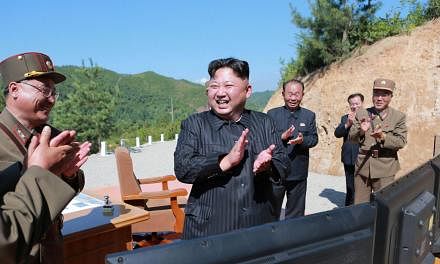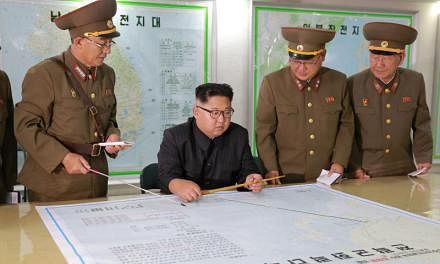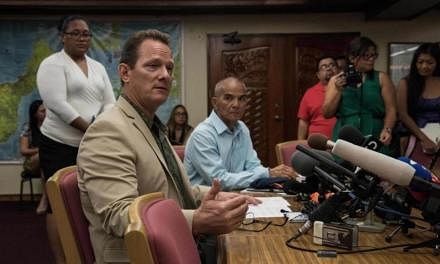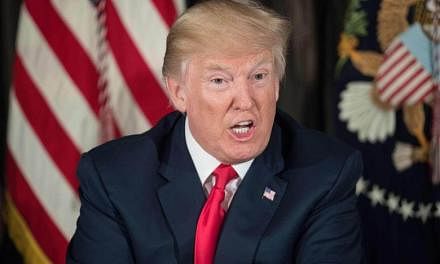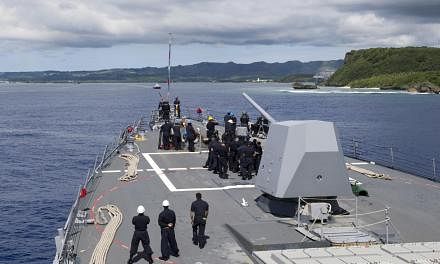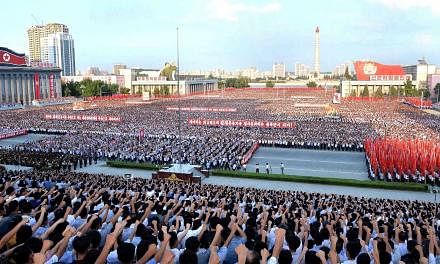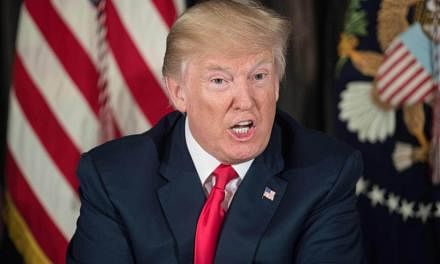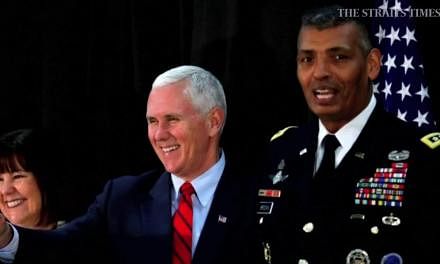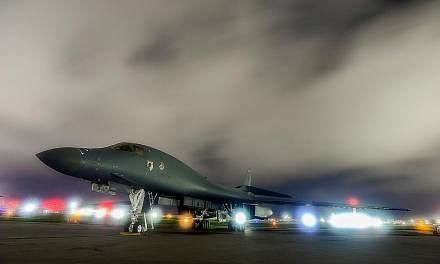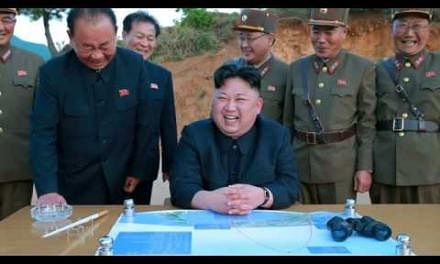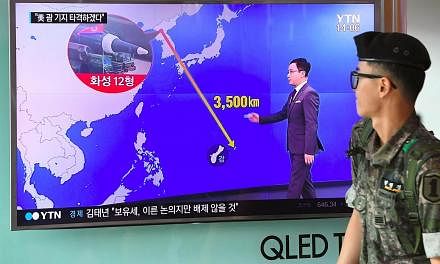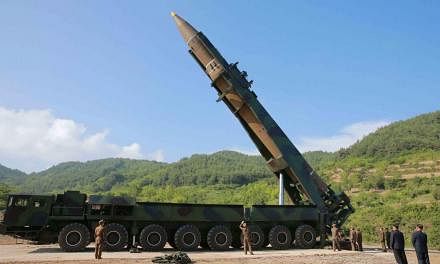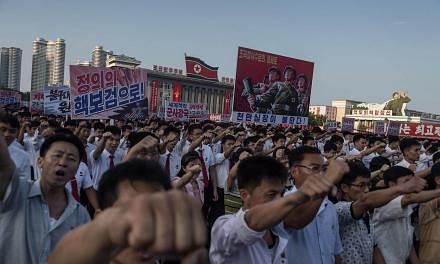WASHINGTON • Hawkish rhetoric from President Donald Trump and key aide Sebastian Gorka, in sharp contrast to the moderate tone of Secretary of State Rex Tillerson, who has tried to downplay fears of a military conflict on the Korean peninsula, has brought into the open splits in the United States administration.
The North Korea crisis has split hawks from those who believe a military conflict would not only destroy the North, but also engulf the peninsula. By some estimates, casualties could well exceed one million people, including Americans.
The mixed signals are dangerous, analysts say, as North Korea and the US edge closer to the brink.
Mr Gorka, a security and counter- terrorism specialist little known in that field before his White House role, told media no one should listen to Mr Tillerson on military matters related to North Korea.
Pushing back on Thursday, more than 60 House Democrats sent a letter to Mr Tillerson expressing "profound concern" over Mr Trump's rhetoric and reminding him that any attack "must be debated and authorised by Congress".
On Wednesday, Defence Secretary James Mattis, a former general, noted in a carefully worded statement that the US had an "unquestionable commitment" to "defend ourselves from an attack".
He said on Thursday that the "rhetoric is up to the President".
"The American people elected the President, and I think… he is just showing the concern he has."
In an e-mail, the New York-based non-profit Soufan Centre said the crisis "over North Korea is exacerbated by a White House that views the issue in terms of personalised strength and weakness".
"Even in a well-functioning White House - which this one is not - personalising the issue raises the risk of rash decisions during a time of crisis," it added.
Professor Zachary Abuza of the National War College in Washington told The Straits Times the mixed signals were worrying.
"Deterrence requires capability, credibility and communications. We have the first two, but are all over the place on the third. That in itself is dangerous," he said.
Nirmal Ghosh
